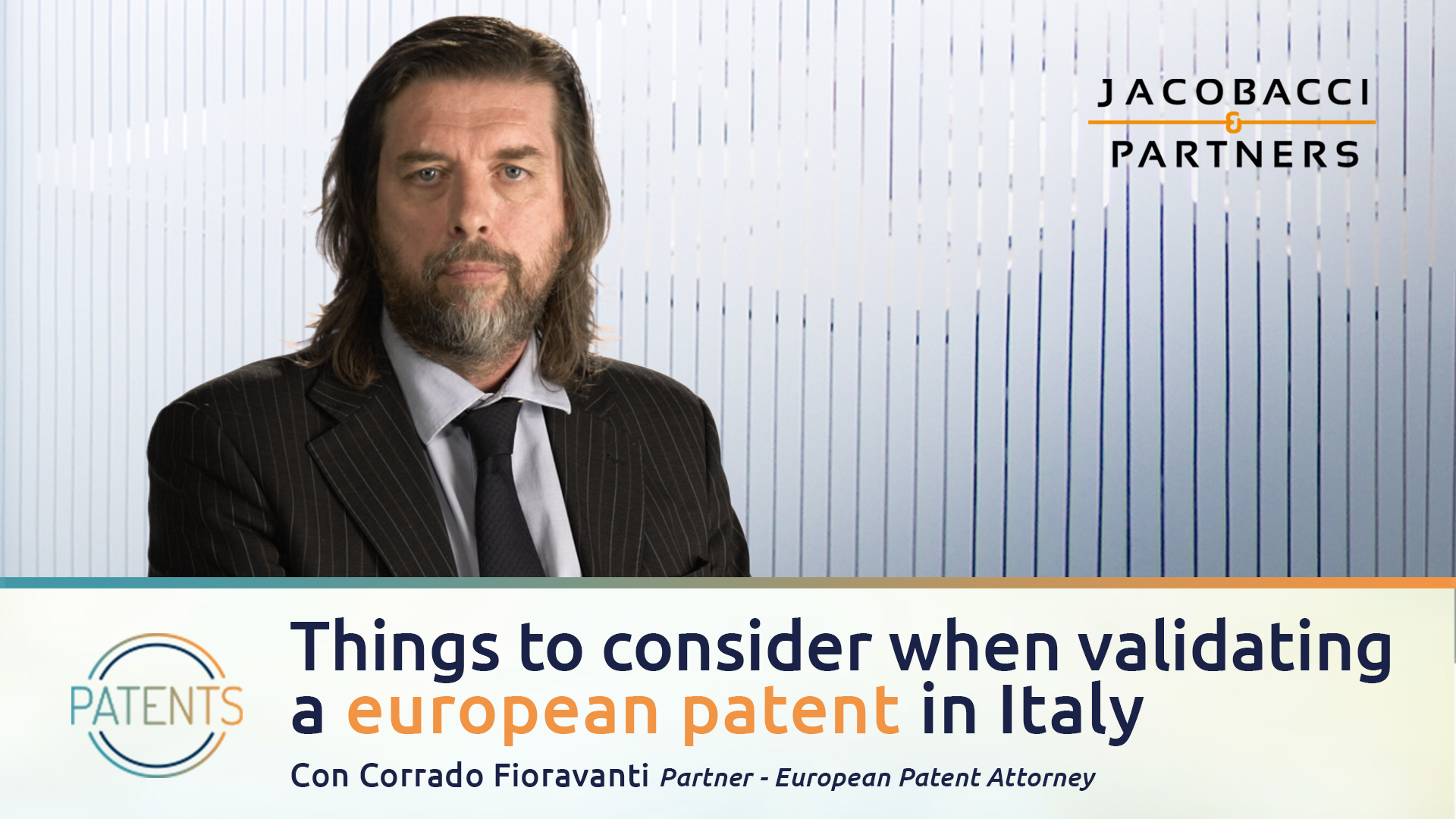The Italian Board of Appeal recently held that the conclusions of foreign national patent offices are relevant evidence when evaluating whether a patent owner seeking the reinstatement of rights has demonstrated that its representative had adequate means to carry out the task entrusted to it.
Relevant provision
According to Article 193 of the Code of Industrial Property, the applicant for or owner of an industrial property right that does not comply with the time limit established by the Italian Patent and Trademark Office (IPTO) can request the reinstatement of its rights when the failure to comply results in the loss of the industrial property right.
To be eligible for reinstatement, the omitted act must be carried out and the petition for reinstatement (including the facts and grounds for reinstatement) must be filed within a specific time limit. However, a request for reinstatement of a right is not granted automatically. The outcome depends on whether the requesting party has satisfied the requirement of demonstrating "diligence" in the prosecution or maintenance of the right. More specifically, the applicant must prove that the representative appointed to manage the prosecution or maintenance has adequate means to carry out the task entrusted to it, supported by consistent evidence in the representative’s professional history. Access to reinstatement shall be denied if the rights holder cannot prove this.
Facts
The owner of a European patent entrusted a representative to file the translations necessary for validating the patent in several countries, including Italy. The representative failed to carry out this task before the deadline and the patent was not validated in the selected member states. Consequently, petitions for reinstatement of rights were filed in the states.
In Italy, the petition for reinstatement filed before the IPTO stated that the patent owner had hired the English office of an IP firm to manage the prosecution of the patent before the European Patent Office. In turn, the English office had entrusted the Luxembourg office of the same firm to carry out the necessary translations for validation at national level.
The petition explained in detail the standard procedures followed by the Luxembourg office, pointing out that such procedures complied with the standards of professional diligence. The petition also pointed out that the delay in the validation process of the European patent was due to a misunderstanding between the English and Luxembourg offices. More specifically, the request for translation sent by the English office to the Luxembourg office mistakenly included an additional country (Norway) which had not been designated. The Luxembourg office requested clarification from the English office, which informed the Luxembourg office that it would discuss the matter with the client. While waiting for an answer from the English office, the Luxembourg office took no further steps to validate the European patent in any country. Conversely, the English office believed that the Luxembourg office would proceed with the validation of the European patent in all relevant countries except Norway.
This misunderstanding was discovered a few days after the term for validating the European patent had expired. The Luxembourg office immediately filed petitions for reinstatement of rights in Spain, Denmark, Holland, Sweden and Italy.
IPTO decision
The IPTO rejected the petition for reinstatement of rights. It observed that the requirement of “diligence required by the circumstances” had not been satisfied, since the requirement also required the applicant to choose a representative with adequate means to carry out the task entrusted to it according to the standards of the profession.
In particular, the IPTO noted that while the information provided by the rights holder in the petition included a thorough discussion of the organisation of the Luxembourg office, it said little about the adequacy of the organisation of the English office. The IPTO found this to be a relevant omission because the English office appeared to be at least jointly responsible for the misunderstanding that led to missed deadline.
In response to the rejection by the IPTO, the rights holder filed further arguments explaining in more detail the causes that led to the misunderstanding and the missed deadline.
The IPTO responded by stating that the arguments did not overcome its previous objections. Accordingly, the IPTO definitively rejected the petition for reinstatement of rights.
Petition to Board of Appeal
The rights holder appealed the IPTO decision to the Board of Appeal, arguing that the case involved an isolated error in an otherwise reliable system. Thus, according to established case law, the relevant conditions for reinstatement were fulfilled. In addition, the rights holder provided documentary evidence that similar petitions had already been granted in all other countries in which they had been filed, with Italy being the only exception.
In response, the IPTO (as the respondent on appeal) submitted a statement before the Board of Appeal in support of its rejection of the petition, noting in particular that:
-
the appellant failed to meet its burden to demonstrate the diligence of the representatives it entrusted with the task because it focused its attention exclusively on the responsibility of the Luxembourg office, leaving out the far more serious responsibilities of the English office;
-
the applicant could not invoke the argument that the omitted act was due to an isolated human error, given that the organisation at issue was already involved in three previous cases of missed deadlines; and
-
the documents produced by the appellant showed that the English office manager's conduct lacked sufficient diligence and professionalism.
Board of Appeal decision
The Board of Appeal reversed the IPTO's decision, finding that the rights holder had proven that the organisation of the representative was adequate in connection with the request for reinstatement of rights.
This is despite the fact that the board held that the first IPTO objection was well founded – namely, that the rights holder had failed to produce sufficient documentary evidence demonstrating compliance of the representative’s organisation with the adequacy requirement. In particular, the initial arguments filed by the applicant failed to provide full and complete information on the organisation of the English office.
However, the board also found that the rights holder had provided documentary evidence that four patent offices in other countries (Denmark, Spain, Holland and Sweden), considering the organisation of the representative as a whole, had concluded that the requirements for reinstatement had been fulfilled and granted the petition for reinstatement in procedures that were pending in parallel with the Italian case. Although such outcomes do not lead directly to a legal presumption in favour of the appellant, they should be considered as relevant evidence according to the general principle of Article 116 of the Code of Civil Procedure.
In the board’s view, the documents obtained from the foreign patent offices had a sufficient degree of plausibility and demonstrated that the representative had adequate means of carrying out the tasks with which it was entrusted.
Comment
The board’s decision reaffirms the importance of choosing a representative with adequate means to carry out the tasks entrusted to it. This is a basic requirement that must be fulfilled in order for a petition of reinstatement of rights to be accepted. Moreover, the decision shows that the outcome of petitions for reinstatement filed before foreign patent offices can be critical evidence in support of a corresponding petition filed before the IPTO, especially when the rights holder initially fails to provide full documentary evidence of the representative’s reliability.





